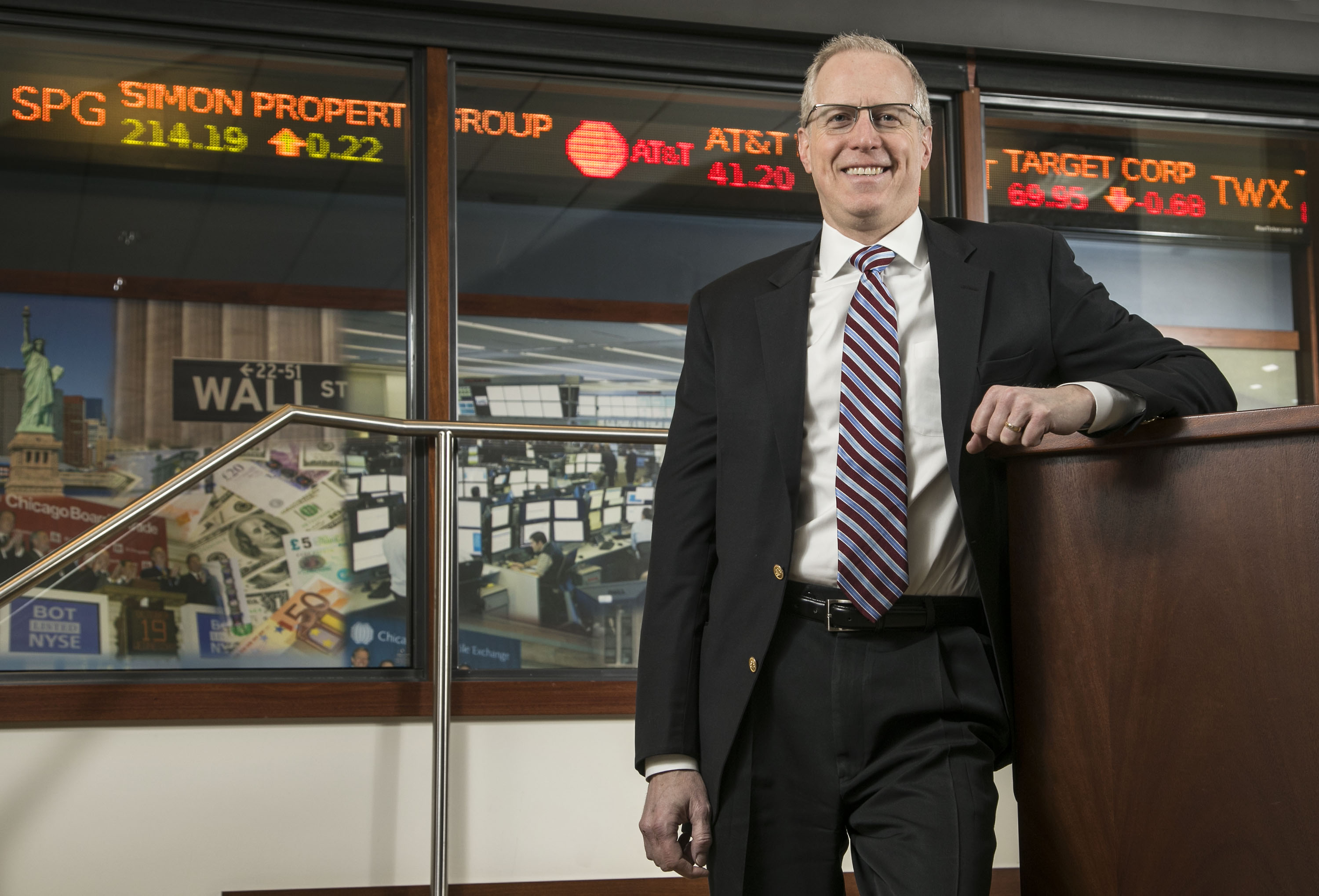 Jim Valentine, a clinical professor of finance in the Driehaus College of Business, believes that after a booming 2017 on Wall Street, the volatility the markets have shown so far in 2018 is not unusual. (DePaul University/Jamie Moncrief)
Jim Valentine, a clinical professor of finance in the Driehaus College of Business, believes that after a booming 2017 on Wall Street, the volatility the markets have shown so far in 2018 is not unusual. (DePaul University/Jamie Moncrief)
"After a booming 2017 on Wall Street, the volatility that the markets have shown so far in 2018 is not unusual," says Jim Valentine, a clinical professor of finance in the Driehaus College of Business.
Valentine has spent his career researching the stock market, serving as an equity research analyst in both the U.S. and Europe. He is the author of "Best Practices for Equity Research Analysts," and started AnalystSolutions, which helps analysts and prospective analysts improve their stock picking skills. At DePaul, Valentine is the executive director of the Driehaus Center for Behavioral Finance, which aims to teach business students about aspects of this type of finance, assist faculty members with research, and educate practitioners about the most common pitfalls when investing.
In this Q&A, Valentine explains the recent volatility in the market, how new tariffs affect it and what people should know before investing.
What causes the stock market to go up or down?
Put simply, the stock market moves in the direction of expected corporate earnings growth. Therefore, anything likely to boost or impede corporate earnings is going to affect the market. Sometimes these events can be forecast with some level of accuracy, such as labor inflation. Others are completely unpredictable, such as natural disasters, election upsets and terrorist attacks.
Why has volatility increased in the last few months following a period of steady growth?
With the Federal Reserve starting to tighten, interest rates beginning to rise and inflation potentially coming into question, some unease in the marketplace relative to the euphoria we've had with the stock market since the November 2016 election has been created. Higher inflation can be a good sign the economy is recovering, but it has a darker side - corporate borrowing costs rise, which creates a drag on corporate earnings growth.
It's also worth noting when interest rates rise, it offers alternative investment opportunities for investors. The shift of investment appetite from stocks to bonds has a negative impact on the stock market. Even though there are some forces working against the stock market, valuations are near 30-year highs, excluding crazy high levels during the internet bubble of the late-1990s.
We've seen the term trade war thrown around a lot recently. Why does the threat of a trade war affect the market so much?
The reality is, in a trade war there are going to be some companies that are winners and some that are losers. Initially what's going to happen is you'll see a dislocation of capital. For example, if the trade war had an impact on an aircraft manufacturer, the manufacturer would have plants with excess and unneeded planes, so their stock would do poorly. However, presumably the stocks winning part of the trade war, such as steel companies, would benefit. Nevertheless, it takes time for the assets to be re-allocated to the right sectors.
What do people need to know and consider when they are looking to invest in stocks?
Broadly speaking, you need to understand the risk level you're taking on. Some investments are typically more volatile than others. Volatility and risk go hand-in-hand. Before you invest in anything, you need to understand the historical risk and if it's likely to change in the future.
When deciding to put money in the stock market, it all comes down to considering your long-term objectives. Generally speaking, stocks are the best long-term performers among the major asset classes. But be careful about trying to time the market, because it has been proven time and time again it's almost impossible, even for the most savvy investors.
Jim Valentine is among the hundreds of DePaul faculty who offer their expertise to members of the news media through the DePaul Experts Guide. Are you a faculty member interested in speaking with the media? Learn more about the guide in Newsline.